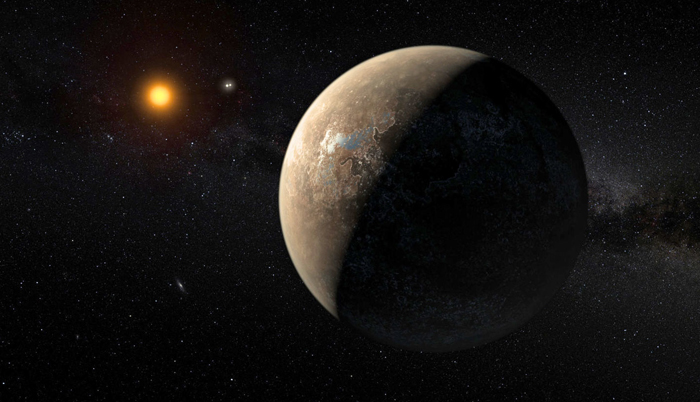![]() Home > Space & Science
Home > Space & Science
Google researchers use AI to spot distant exoplanets

AFP/Getty Images
![]() December 15th, 2017 | 09:36 AM |
December 15th, 2017 | 09:36 AM | ![]() 1481 views
1481 views
WORLD
Hunting for exoplanets is a very data-intensive and time-consuming task. Sifting through piles of data to find subtle signs of distant planets takes quite a lot of work, but researchers at Google have been developing a way to use AI to make the process faster and more effective.
NASA's Kepler mission spent four years focused on one patch of sky and during that time it collected 14 billion data points from 200,000 stars. Spotting an exoplanet is typically done by observing when a star's light temporarily dims as an exoplanet passes between us and the star. During those years, Kepler took a picture every 30 minutes, so there were a lot of chances for that effect to be observed.
Chris Shallue, a Google AI researcher, teamed up with Andrew Vanderburg, an astrophysicist at UT Austin, and together they trained a machine learning system to identify possible exoplanets by mining the data for instances of that telltale momentary dimming in starlight. To do that, they used a dataset of 15,000 Kepler signals, which were already known to be from either exoplanets or other objects like binary stars, to train a machine learning system. When they tested the system, the researchers found it was able to correctly differentiate exoplanet signals from other types of signals 96 percent of the time.
They then took Kepler data from 670 stars already known to have two or more exoplanets to see if any others had been missed. They discovered two new planets -- Kepler 80g and Kepler 90i, the latter of which makes the Kepler 90 star system the first known eight-planet system other than our own.
Shallue and Vanderburg say this is just the beginning. "So far, we've only used our model to search 670 stars out of 200,000," they wrote. "There may be many exoplanets still unfound in Kepler data, and new ideas and techniques like machine learning will help fuel celestial discoveries for many years to come. To infinity, and beyond!"
Source:
courtesy of ENGADGET
by Mallory Locklear
If you have any stories or news that you would like to share with the global online community, please feel free to share it with us by contacting us directly at [email protected]